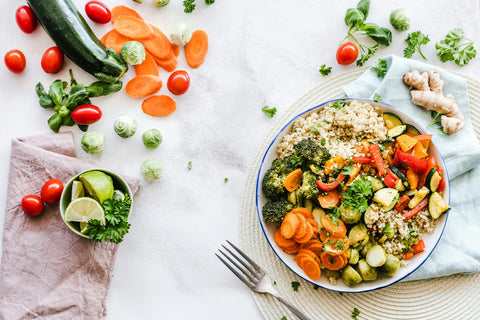
Gas vs. Wood vs. Multi-Fuel: Which Camping Stove Is Right for You?
Choosing the right camping stove can make or break your outdoor cooking experience. Whether you’re picking a compact backpacking stove or a reliable butane stove for car camping, understanding the pros and cons of gas, wood, and multi-fuel options is crucial. Portable camping stoves come in all shapes and fuel types, so knowing which one suits your needs helps ensure safety, convenience, and performance on your next adventure.
“Selecting a camping stove is more than just about fuel; it’s about balancing efficiency, portability, and environmental impact,” says Emma Thompson, an outdoor gear expert and wilderness guide. According to Mark Reynolds, a mechanical engineer specializing in thermal systems, “Fuel choice influences stove performance dramatically, especially when you’re cooking in extreme or remote conditions.”

Gas Stoves: Efficiency and Convenience
Gas stoves remain popular for their ease of use and consistent heat output. Most backpacking stove models use canisters filled with propane or isobutane, known for quick ignition and efficient fuel consumption.
However, a study evaluating carbon monoxide levels from popular gas stove models like the Jetboil MightyMo warns users about ventilation risks. The research found significant CO buildup inside tents, highlighting the importance of proper airflow when using a gas stove indoors or in confined spaces.
For those prioritizing convenience, a gas stove offers a clean burn with minimal soot and adjustable flame control. Butane stoves, a subset of gas stoves, are particularly popular in milder weather due to their lightweight design and portability. These stoves excel for weekend backpackers or casual campers needing quick meals.

Wood Stoves: Back to Nature
Wood-burning camping stoves appeal to those who want to embrace the traditional camping experience and reduce reliance on fuel canisters. They allow you to forage for twigs and small branches, making fuel supply more accessible in wooded areas.
A recent study on solar cook stoves and environmental impacts underscores the desire among outdoor enthusiasts to minimize fuel costs and reduce carbon footprints. While solar stoves differ from wood stoves, the trend toward alternative cooking fuels highlights an eco-conscious mindset among campers.
Wood stoves tend to be bulkier and require more setup time, which may deter ultralight backpackers. But for car campers and long-term adventurers, wood stoves offer a reliable option when fuel canisters are unavailable. They also provide the added benefit of warmth and ambiance during chilly nights.

Multi-Fuel Stoves: Versatility on the Go
Multi-fuel stoves are the jack-of-all-trades in the camping stove world. They burn different fuel types, including gasoline, kerosene, and white gas, which is especially useful for international travelers or those heading to remote areas where specific fuel types may be scarce.
A numerical study of rotary cup burner assemblies in vehicle-mounted stoves explored optimizing combustion and heat distribution, key factors that make multi-fuel stoves effective under various conditions.
The downside is that multi-fuel stoves tend to be heavier and more complicated to operate, requiring regular maintenance. But for serious adventurers and professional guides, their adaptability outweighs these concerns.

Safety and Innovations
Safety should be a top priority regardless of the stove you choose. An analysis critiquing the reliability of research linking gas stove use to respiratory health issues points out the need for clear guidelines on safe stove use, especially around children. (Source)
Innovations are also reshaping the camping stove market. For example, a 2024 project exploring thermoacoustic engines to harness excess heat from stoves and generate electricity could soon change how we power devices off-grid. This development aligns with growing interest in sustainable, multifunctional outdoor gear.

Which Stove Fits Your Adventure?
If you want the quickest setup and cleanest burn, a gas stove or butane stove will serve you well, especially on short trips. Wood stoves are ideal for longer camping excursions where fuel availability is a concern and you enjoy a rustic experience. Multi-fuel stoves are perfect if you need versatility and are willing to carry extra weight.
Remember that the best camping stove also depends on where you camp, the climate, and your cooking needs. Lightweight backpacking stoves shine in alpine conditions, while car campers might prioritize fuel efficiency and durability.

Making the Right Choice for Your Camping Stove
In 2025, camping stove technology continues to evolve, blending tradition with innovation. As Emma Thompson advises, “Understanding your fuel options and stove type is essential, not just for cooking, but for staying safe and minimizing environmental impact.”
Whether you pick a gas stove, wood stove, or multi-fuel option, being informed by recent research helps you make smarter choices. Portable camping stoves now include safer designs, advanced materials, and even power generation capabilities. The right camping stove will fuel your adventures reliably, efficiently, and sustainably—wherever the trail takes you.
About the Author

Kayla Souleiman
Kayla is a nutritionist and fitness expert based in Los Angeles, with a passion for self development & transformation through nutrition. She's an advocate for plant-based diets and functional nutrition, she helps her clients optimise their wellness through balanced, sustainable eating and personalized fitness plans. Kayla combines her Middle Eastern roots with modern nutritional science to create culturally diverse, accessible approaches to healthy living, making her a trusted voice in the wellness community.



